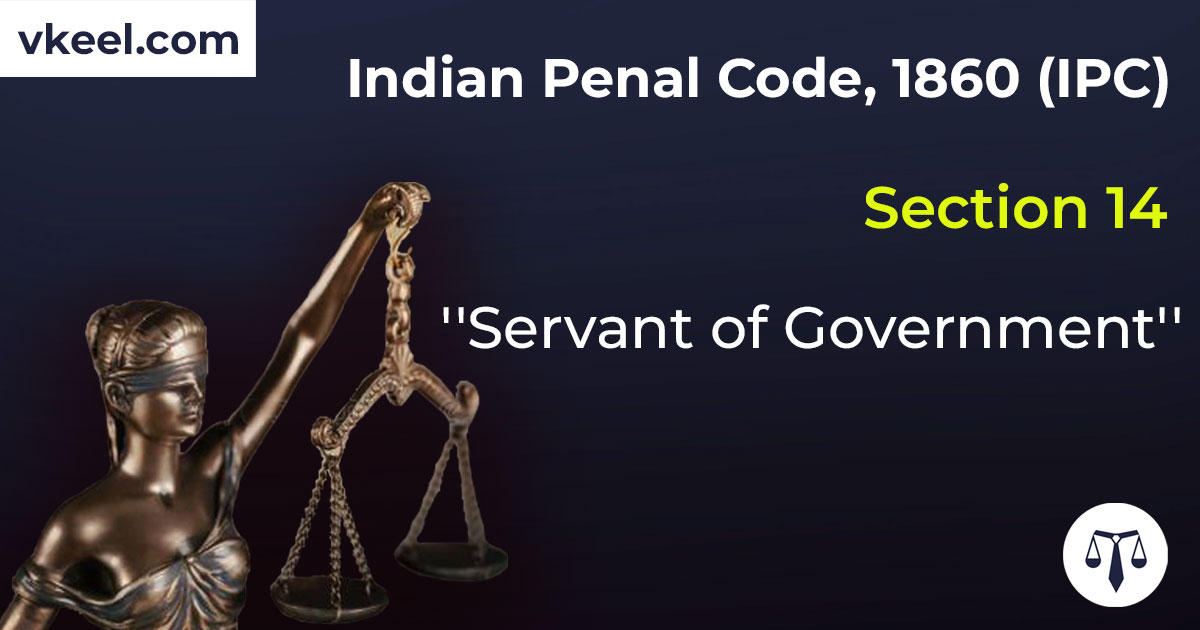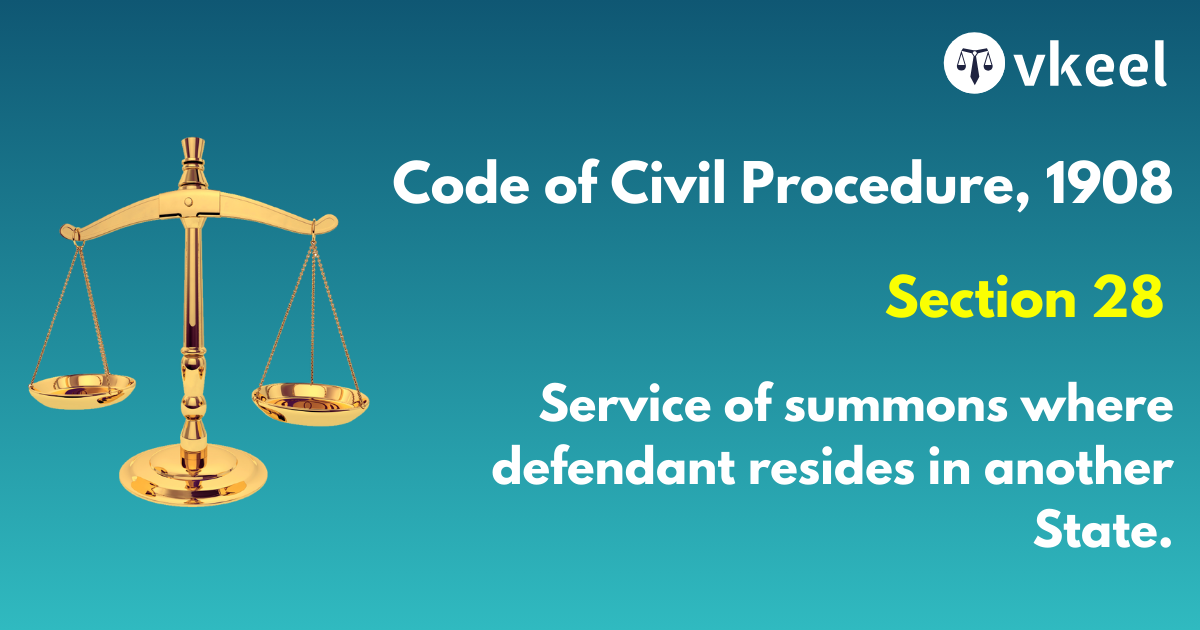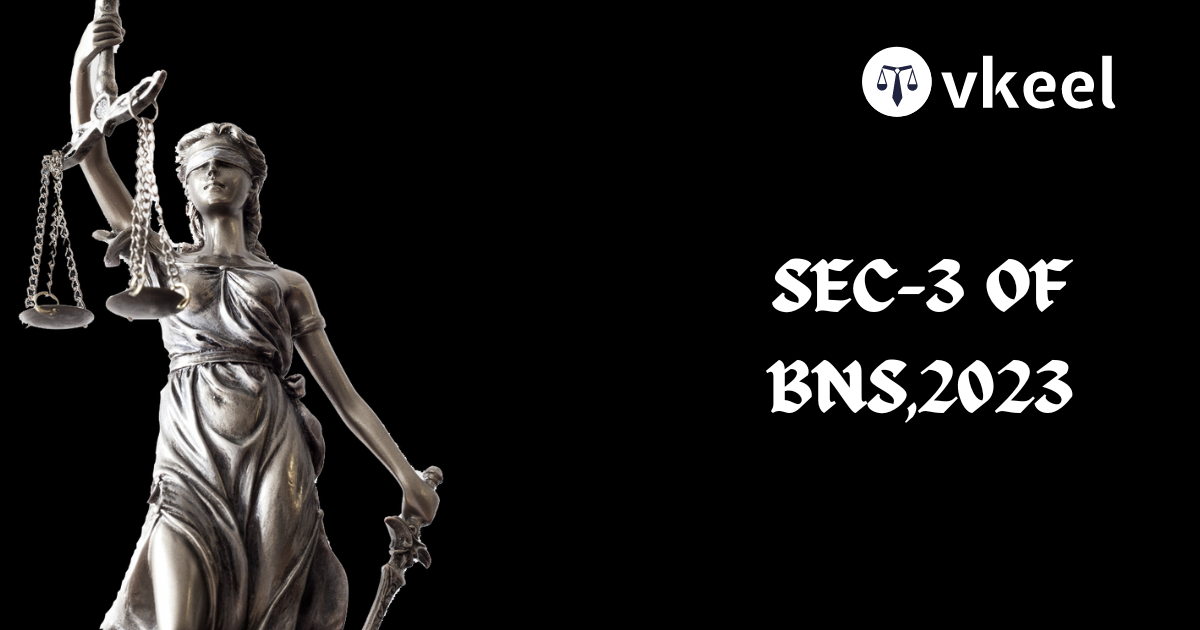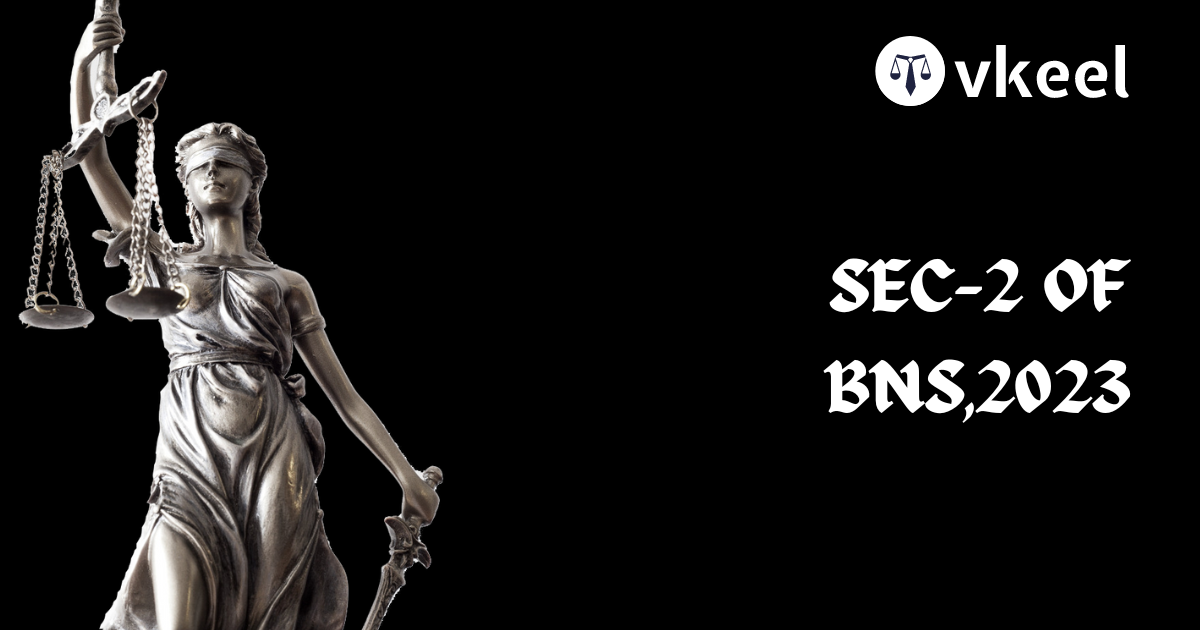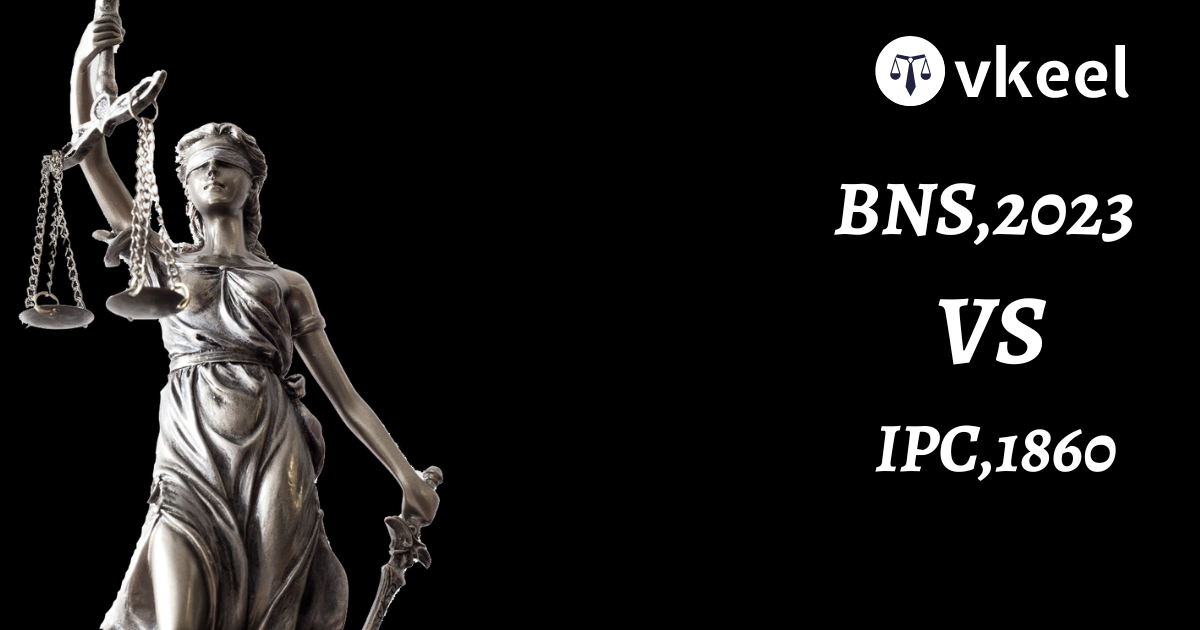Section 14 Indian Penal Code 1860 (IPC) – “Servant of Government”
By Vkeel Team
Table of Contents
Description
“Section 14 Indian Penal Code 1860 (IPC)”
1[The words “servant of Government” denote any officer or servant continued, appointed or employed in India by or under the authority of Government.]
Introduction
Section 14 of the Indian Penal Code 1860 (IPC) defines who can be considered a “servant of government” for the purposes of the code. This section is important because it establishes the scope of authority and responsibility of government officials and employees when it comes to their actions and behavior.
Definition of Servant of Government
Subsection 1 of Section 14 defines a servant of government as any officer or employee of the government, including those employed in public institutions or corporations that are owned or controlled by the government. This broad definition encompasses a wide range of individuals who work for the government, including civil servants, police officers, military personnel, and employees of state-owned enterprises.
It is important to note that the definition of a servant of government does not only include individuals who work in a paid capacity, but also those who serve the government in a voluntary or honorary capacity.
Inclusion of Non-Government Employees
Subsection 2 of Section 14 clarifies that a person can be considered a servant of government even if they are not directly employed by the government. This includes individuals who perform duties on behalf of the government, such as contractors or agents who are hired to carry out specific tasks or functions.
This provision is significant because it extends the jurisdiction of the IPC to individuals who may not be directly employed by the government but are still acting on its behalf.
Declaration of Servant of Government
Subsection 3 of Section 14 establishes that a person who is declared by the government to be a servant of government shall be considered as such for the purposes of the IPC. This means that the government has the authority to designate individuals as servants of government if it deems it necessary to do so in order to ensure the effective functioning of the state.
This provision is important because it allows the government to exercise its authority over individuals who may not fall within the definition of a servant of government under Subsection 1 or 2 but are still deemed necessary to be brought under the purview of the IPC.
Duration of Servant of Government Status
Subsection 4 of Section 14 establishes that anyone who has been declared a servant of government shall be considered as such until the government revokes that declaration. This means that even if an individual leaves their government job or ceases to perform duties on behalf of the government, they may still be subject to the provisions of the IPC if the government has not officially revoked their status as a servant of government.
This provision is significant because it ensures that individuals who have previously worked for the government or performed duties on its behalf are still subject to the same level of accountability and responsibility as current government employees.
Conclusion
Section 14 of the IPC is an important provision that defines the scope of authority and responsibility of government officials and employees when it comes to their actions and behavior. The definition of a servant of government is broad and includes not only individuals who work for the government in a paid capacity but also those who serve the government in a voluntary or honorary capacity.
The inclusion of individuals who perform duties on behalf of the government, such as contractors or agents, ensures that the IPC’s jurisdiction extends to individuals who may not be directly employed by the government but are still acting on its behalf. The provision that allows the government to declare individuals as servants of government ensures that the state can exercise its authority over individuals who may not fall within the definition of a servant of government under Subsection 1 or 2.
Finally, the provision that anyone who has been declared a servant of government shall be considered as such until the government revokes that declaration ensures that individuals who have previously worked for the government or performed duties on its behalf are still subject to the same level of accountability and responsibility as current government employees.
1. Subs., ibid., for section 14.
Desctiption Source: indiacode
Disclaimer:
The information provided in the article is for general informational purposes only, and is not intended to constitute legal advice or to be relied upon as a substitute for legal advice. Furthermore, any information contained in the article is not guaranteed to be current, complete or accurate. If you require legal advice or representation, you should contact an attorney or law firm directly. We are not responsible for any damages resulting from any reliance on the content of this website.

